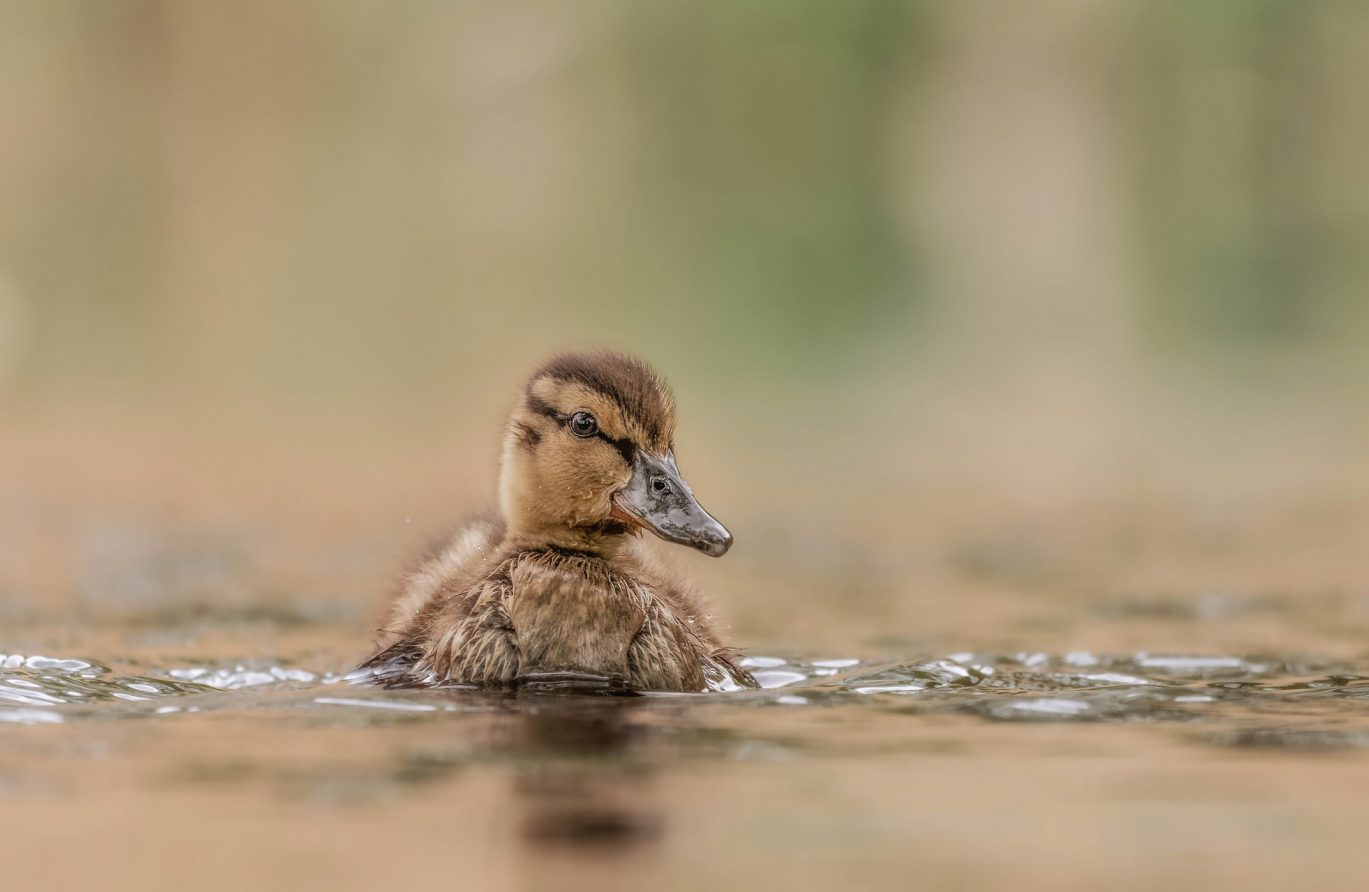
Ducklings
Every year we receive hundreds of calls about Mallard ducklings at our National Wildlife Rescue Centre (NWRC). Whilst you might think you are helping, not every lone or distressed duckling needs to be rescued.
On this page:
Last year, we admitted almost 100 Mallard ducklings unnecessarily. Mallard ducklings are highly independent at an early age, so it’s important to know when they require intervention and when it’s best to leave them where they are.
We need your help to reduce displacing ducklings unnecessarily. To help you decide what to do if you discover a duckling, please read our advice below to determine when a duckling needs our help or not.
When health or safety of a duckling is at risk, you should intervene
- Injured ducklings: If a duckling is limping, bleeding, or shows signs of a serious injury (e.g., broken leg, wing, or head trauma), it should be lifted immediately.
- Ducklings in dangerous locations: If a duckling is found near roads, busy parking lots, or areas where there are immediate threats, they need to be moved to a safer area and monitored for around an hour to ensure the mother returns. They should not be taken away straight away.
- Abandoned or alone for an extended period: Mallard ducklings are usually cared for by their mother, and while she may leave them for short periods, if they are left alone for an extended time (several hours), or if there’s no sign of the mother, the ducklings may need help.
- Chilled or cold ducklings: If the duckling is cold to the touch and not moving or responding normally, it may be hypothermic. In this case, immediate intervention is necessary.
What to do if you find a Mallard duckling that needs intervention
- Observe from a distance: Before acting, give the duckling some time (around 2 hours) to see if the mother returns. Mallard mothers are usually close by and will return to their ducklings if left undisturbed.
- Do not feed the duckling: Wild ducklings have very specific dietary needs, and feeding them improperly can harm them. If intervention is necessary, the rehab center will provide the appropriate care.
- Transport with Care: If the duckling needs to be rescued, handle it gently and keep it warm.
Common occurrences when ducklings need your intervention
- Duckling has fallen down a drain: Remove carefully from the drain – ARO’s can assist with this. Once removed from the drain, if the ducklings appear in good health, pop them away from the drain and monitor for mum to return.
- Ducklings stuck in courtyard/enclosed areas where mother cannot enter: Gather up the ducklings and place them outside the enclosed area and wait for mum to return.
- Ducklings on a balcony: Place them on safe ground where the mother will spot them and wait for her to return.
When ducklings do not need intervention and their health or safety is not at risk
Many ducklings that may appear to be abandoned or alone are actually fine. It’s important not to disturb them unnecessarily. Here are examples of when ducklings do not need rescuing:
- Ducklings with a mother nearby: If you see a duckling alone, and the mother is in the area, it is never acceptable to lift the duckling. This will cause the duckling and the mother severe distress. Mallard mothers will often leave their ducklings in safe areas while they forage or rest, and the mother will return to check on them periodically.
- Ducklings in groups: If you find a group of ducklings without their mother, give them time. The mother might be close by, and the ducklings are likely not abandoned. In some cases, the mother will call them back after a short period.
Key points to remember
- If ducklings appear healthy and the mother is visible, please do not touch them.
- If ducklings appear healthy and the mother is not visible, please monitor them for at least one hour as the mother will likely return. Do not touch them until the monitoring period is over.
- If ducklings are in an unsafe area but mother has been scared off, please move the ducklings to a safe nearby area and wait for mother to return. She is very unlikely to abandon her chicks due to one frightening situation.

Support us from £5 a month
It costs us £63,000 every day to continue the work that animals across Scotland depend on. Our work is only possible because of the generosity of people like you.



